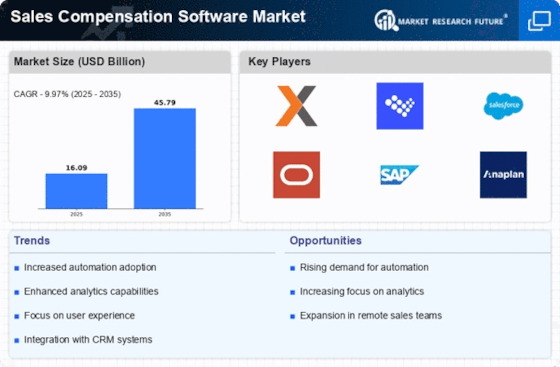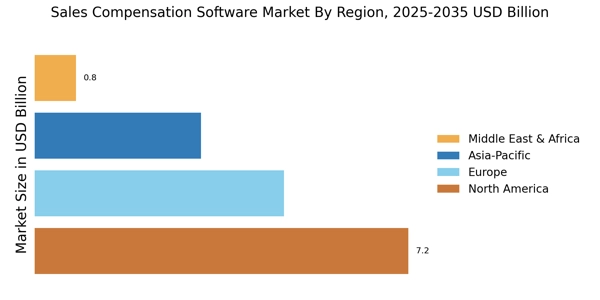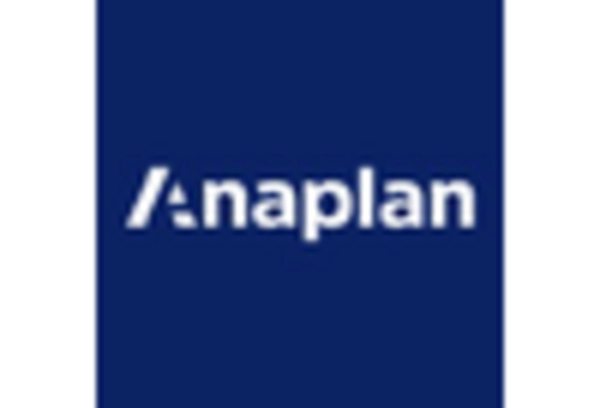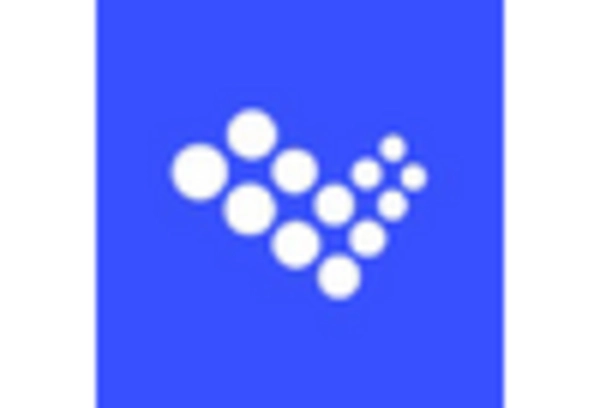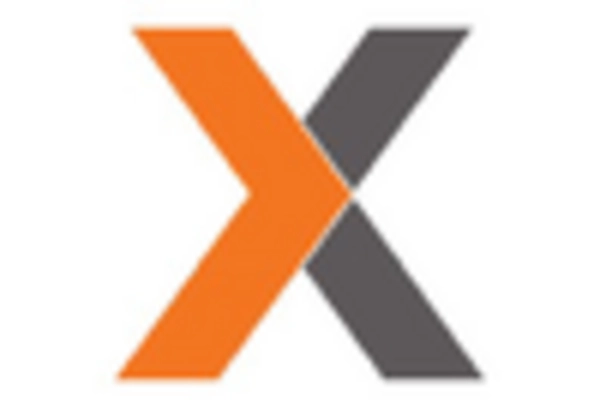Increased Focus on Performance Management
The Sales Compensation Software Market is experiencing a notable shift towards performance management as organizations seek to enhance productivity and drive sales effectiveness. Companies are increasingly recognizing the importance of aligning compensation structures with performance metrics. This trend is evidenced by a projected growth rate of approximately 12% in the adoption of performance-based compensation models. As organizations strive to motivate their sales teams, the integration of sophisticated software solutions that facilitate real-time performance tracking and analytics becomes essential. This focus on performance management not only aids in retaining top talent but also fosters a culture of accountability and transparency within sales teams, thereby propelling the Sales Compensation Software Market forward.
Expansion of Sales Teams in Emerging Markets
The Sales Compensation Software Market is poised for growth due to the expansion of sales teams in emerging markets. As businesses seek to tap into new customer bases, the need for effective compensation management becomes paramount. This trend is particularly evident in regions where economic development is accelerating, leading to an increase in sales personnel. The market is expected to grow by approximately 15% in these regions as companies adopt sales compensation software to streamline their processes and ensure competitive compensation structures. This expansion not only enhances the operational efficiency of sales teams but also contributes to the overall growth of the Sales Compensation Software Market, as organizations invest in technology to support their scaling efforts.
Rising Demand for Data-Driven Decision Making
In the Sales Compensation Software Market, there is a growing emphasis on data-driven decision making. Organizations are increasingly leveraging analytics to inform their compensation strategies, ensuring that they remain competitive in attracting and retaining talent. The market is projected to witness a compound annual growth rate of around 10% as companies invest in software that provides insights into compensation trends and employee performance. By utilizing data analytics, businesses can tailor their compensation packages to meet the specific needs of their workforce, thereby enhancing employee satisfaction and engagement. This trend underscores the critical role of technology in shaping compensation strategies, ultimately driving growth within the Sales Compensation Software Market.
Emphasis on Compliance and Regulatory Standards
The Sales Compensation Software Market is increasingly influenced by the need for compliance with regulatory standards. As organizations navigate complex legal frameworks, the demand for software solutions that ensure adherence to compensation regulations is on the rise. This trend is particularly relevant in industries with stringent compliance requirements, where failure to meet standards can result in significant penalties. The market is anticipated to grow by approximately 11% as companies invest in compensation software that incorporates compliance features. By prioritizing compliance, organizations not only mitigate risks but also enhance their reputation and trustworthiness in the marketplace. This emphasis on regulatory adherence is a key driver of growth within the Sales Compensation Software Market.
Integration of Artificial Intelligence and Automation
The integration of artificial intelligence (AI) and automation within the Sales Compensation Software Market is transforming how organizations manage their compensation processes. AI-driven solutions are enabling companies to automate routine tasks, such as data entry and report generation, thereby increasing efficiency and reducing errors. This technological advancement is projected to drive a market growth rate of around 14% as organizations seek to leverage AI for predictive analytics and personalized compensation strategies. By harnessing the power of AI, businesses can gain deeper insights into compensation trends and employee performance, ultimately enhancing their ability to attract and retain top talent. This trend signifies a pivotal shift in the Sales Compensation Software Market towards more intelligent and responsive compensation management.


